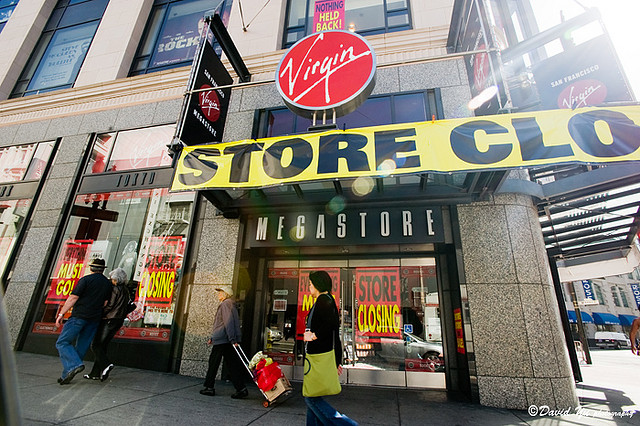An enemy called E-commerce?
E-commerce is putting traditional distributors through the wringer, this reality has become unavoidable. But behind the very neutral term of e-commerce, everyone thinks of the Amazon giant which, despite low or non-existing margins, has managed to grab the first place as cultural and manufactured goods distributor in the world. A role model? Not so sure. « Pure-player companies have such a different structure, whether it be in fixed, variable or semi-variable costs. Copying their business model is plain impossible for a physical shop”, according to Geert Schotte, CEO for Standaard Boekhandel, a brand specialized in books and cultural goods in Flanders. The fight seems one-sided, at first glance, between a multinational giant and a network of physical shops in Flanders. This being said, no one seems intent on patiently waiting for the humble business to die.
Cross-channel strategies
For Standaard Boekhandel, the answer came with an external growth and sector concentration strategy, so as to reach critical mass and resist the market’s ebb and flow. This translated into the takeover of its competitor Club, in 2014, in order to expand into Wallonia. “Our strategy consists in making both brands co-exist not side by side but in synergy”, explains Geert Schotte. But Standaard Boekhandel went further in re-founding its processes: the time has come for multi-channel. The game is now to compete with e-commerce on its own playground by relying on its main strength: flexibility and diligence. The CEO has succeeded in imposing this choice, despite doubts the franchisees had about online sales potential. As a result: “rising sales on a dwindling market”, the CEO confirms. E-commerce and cross-channel now impose themselves as the solution to raise sales volumes. Are these conditions necessary and sufficient to make the business sustainable?
Going beyond the showcase
Well beyond Flanders, some businesses admit that cross-channel strategies may not suffice. MediaWorld, a Media Markt subsidiary and number one distributor in Italy, recently admitted that online sales made for only 8% of its cash flow, despite early development. “Competition occurs not only on quality, but also on market presence, service, product availability and innovation capacity”, said Joachim Rosges, as soon as he was nominated at the head of MediaWorld in 2014. Now, in 2014, Mediaworld’s revenue dropped 20%, from 2.5 to 2 billion euros. Caught between multiplying discounts and pressure on prices, distribution brands are struggling. MediaWorld therefore bet on product diversification, even if it meant investing into new channels.
New products
For the Italian MediaWorld, originally focused on Hi-Fi, the broadening of the product range hinges mostly on mobile object ramping up: tablets, readers, smartphones… With a little success already at hand : if MediaWorld and its parent company Media Markt, itself part of the Metro Group, have closed several shops in Europe these past years, including the entire Saturn chain in France, two MediaWorld-Saturn shops will soon open in Rome and Palermo, to focus on high-potential areas. In France, the stance is identical with the historical business FNAC, on a market which was deeply disrupted by the disappearance of the Virgin brand from a similar market segment. For Matthieu Malige, FNAC group financial director, the strategy is twofold : « combining what both the digital and physical world have to offer » and « finding growth relays », namely by introducing « five new product families in only 24 months ». Like MediaWorld, the French FNAC now has a renewed product range, with connected objects, household appliances or gift boxes, in the leisure and tourism sector.
Strategies that remain risky
For FNAC in France, just as for MediaWorld in Italy and Standaard Boekhandel in Belgium, the aim is to channel customers towards shops, by offering also what cannot be sold online: advice, quality and listening. Caution is nonetheless in order, for shops who would be tempted only with making cash: this physical and virtual field-presence strategy presents a real risk of scattering and confusion between very different products and markets. Books are not sold the same way as coffee machines and toys: and editorial products aren’t sold like technological ones.
The same observations stand for gift boxes, a promising family but for which the economic contribution of each player in the chain must be taken into account. If it isn’t, the service providers are not sufficiently compensated; this is precisely what caused the collapse of the market in some countries, namely England and Portugal.
Omni-product strategies require caution and thoroughness in sales and management. New customer standards, and new demands for more services with equal quality all shape a reality which has become obvious: the offer must be focused on customer need or desires, and not on the way implemented to satisfy them, as this remains necessary but not central.
The same observations stand for gift boxes, a promising family but for which the economic contribution of each player in the chain must be taken into account. If it isn’t, the service providers are not sufficiently compensated; this is precisely what caused the collapse of the market in some countries, namely England and Portugal.
Omni-product strategies require caution and thoroughness in sales and management. New customer standards, and new demands for more services with equal quality all shape a reality which has become obvious: the offer must be focused on customer need or desires, and not on the way implemented to satisfy them, as this remains necessary but not central.





